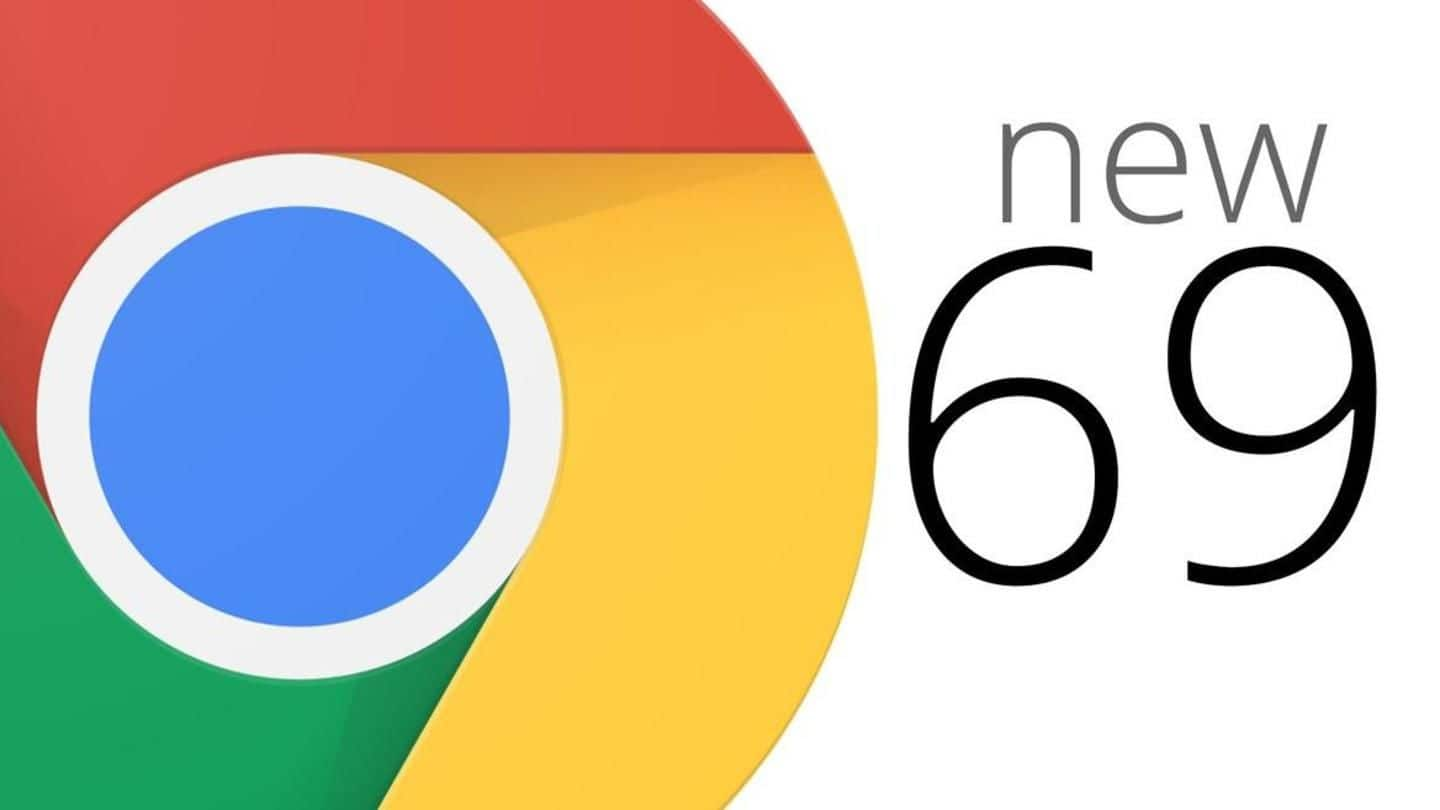
Google Chrome update drawing flak from privacy advocates, but why?
What's the story
Just a few weeks back, Google launched Chrome 69 - the latest iteration of its web browser - integrated with fresh design elements, enhanced password manager, and more. The update rolled out successfully in different parts of the world, but over the last week, privacy advocates flagged a major problem in the new version - 'browser login' on using Google services. Here's more.
Automatic sign-in
Automatic sign-in on using Gmail, Photos, or Docs
Google has a 'Chrome Sync' feature that allows users to store their data (passwords, browsing history, other personal information) on company's servers and share them across devices by logging into the browser. However, in the new update, whenever someone signed into a Google service like Gmail, YouTube, Photos or Docs, the account icon on the top displayed image of the user, indicating Chrome sign-in.
Google's explanation
Flak from privacy experts, explanation from Google
The change drew immediate flak from privacy experts, who stressed Google is forcing users to share their data on Chrome and with its servers. As the issue escalated, Adrienne Porter Felt, Google's engineer and manager for Chrome, explained the case. The engineer tweeted that while service login signs the user into the browser, it doesn't mean their data is being shared with Google.
Twitter Post
Here's what Felt tweeted
My teammates made this change to prevent surprises in a shared device scenario. In the past, people would sometimes sign out of the content area and think that meant they were no longer signed into Chrome, which could cause problems on a shared device. 3/
— Adrienne Porter Felt (@__apf__) September 24, 2018
Confusion
Move to avoid confusion on shared devices
She stressed Google made the change in a bid to avoid fuss on shared devices. Previously, people would log out of Gmail and think they're logged out of Chrome too, leading the second user to log-in on first one's Chrome and syncing data with it. This update prevents that from happening but doesn't share browsing data with Google, not until Chrome sync is enabled.
Google's 'dark pattern'
Still, Google is nudging users towards data sharing
Though Felt's explanation ensures that our data isn't synced unless we do that categorically, experts have noted that the ultimate goal is to push people in that direction. Matthew Green, a professor at John Hopkins University, highlighted the latest UI change is such that people could accidentally activate Chrome sync and end up sharing their data. He termed this as a 'dark pattern'.